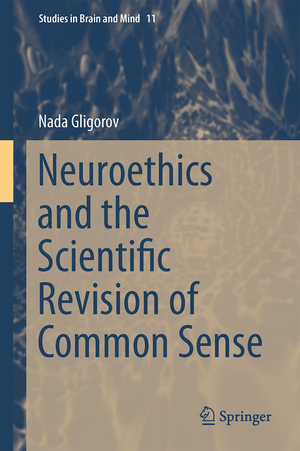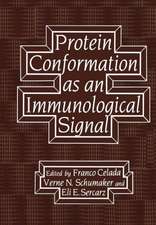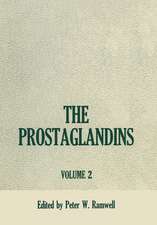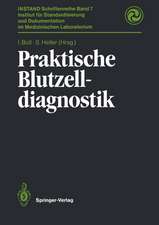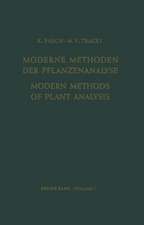Neuroethics and the Scientific Revision of Common Sense: Studies in Brain and Mind, cartea 11
Autor Nada Gligoroven Limba Engleză Hardback – 5 oct 2016
Neuroethics is one of the newest, developing branches of Bioethics. Topics often raised include issues of free will, personal identity and the self; the possible ethical implication of memory manipulation; brain imaging and mind-reading; brain stimulation/enhancement and its impacts on personal identity; and brain death.
| Toate formatele și edițiile | Preț | Express |
|---|---|---|
| Paperback (1) | 381.98 lei 22-36 zile | |
| SPRINGER NETHERLANDS – 15 iun 2018 | 381.98 lei 22-36 zile | |
| Hardback (1) | 391.22 lei 22-36 zile | |
| SPRINGER NETHERLANDS – 5 oct 2016 | 391.22 lei 22-36 zile |
Din seria Studies in Brain and Mind
- 15%
 Preț: 645.96 lei
Preț: 645.96 lei - 15%
 Preț: 583.61 lei
Preț: 583.61 lei - 24%
 Preț: 686.50 lei
Preț: 686.50 lei - 15%
 Preț: 699.77 lei
Preț: 699.77 lei - 15%
 Preț: 707.96 lei
Preț: 707.96 lei - 15%
 Preț: 645.47 lei
Preț: 645.47 lei - 15%
 Preț: 643.99 lei
Preț: 643.99 lei -
 Preț: 390.08 lei
Preț: 390.08 lei - 20%
 Preț: 554.04 lei
Preț: 554.04 lei - 15%
 Preț: 578.05 lei
Preț: 578.05 lei - 18%
 Preț: 791.40 lei
Preț: 791.40 lei - 18%
 Preț: 777.03 lei
Preț: 777.03 lei - 15%
 Preț: 646.94 lei
Preț: 646.94 lei - 15%
 Preț: 691.91 lei
Preț: 691.91 lei - 15%
 Preț: 698.80 lei
Preț: 698.80 lei - 15%
 Preț: 641.85 lei
Preț: 641.85 lei - 18%
 Preț: 1118.45 lei
Preț: 1118.45 lei - 15%
 Preț: 639.25 lei
Preț: 639.25 lei - 15%
 Preț: 662.80 lei
Preț: 662.80 lei -
 Preț: 392.21 lei
Preț: 392.21 lei -
 Preț: 394.71 lei
Preț: 394.71 lei -
 Preț: 394.51 lei
Preț: 394.51 lei
Preț: 391.22 lei
Nou
Puncte Express: 587
Preț estimativ în valută:
74.87€ • 77.69$ • 62.58£
74.87€ • 77.69$ • 62.58£
Carte disponibilă
Livrare economică 24 februarie-10 martie
Preluare comenzi: 021 569.72.76
Specificații
ISBN-13: 9789402409642
ISBN-10: 9402409645
Pagini: 182
Ilustrații: X, 169 p.
Dimensiuni: 155 x 235 x 15 mm
Greutate: 0.49 kg
Ediția:1st ed. 2016
Editura: SPRINGER NETHERLANDS
Colecția Springer
Seria Studies in Brain and Mind
Locul publicării:Dordrecht, Netherlands
ISBN-10: 9402409645
Pagini: 182
Ilustrații: X, 169 p.
Dimensiuni: 155 x 235 x 15 mm
Greutate: 0.49 kg
Ediția:1st ed. 2016
Editura: SPRINGER NETHERLANDS
Colecția Springer
Seria Studies in Brain and Mind
Locul publicării:Dordrecht, Netherlands
Cuprins
1. Introduction.- 2. Rethinking Commonsense Conceptual Frameworks.- 3. The Common Notion of Free Will.- 4. Cognitive Enhancement and Personal Identity.- 5. The Truth about Memory and Identity.- 6. Brain Imaging and the Privacy of Inner States.- 7. Objectifying Pain.- 8. Identifying Death.
Recenzii
“Nada Gligorov focuses on several of the more metaphysical concerns in neuroethics and engages in an insightful way with philosophy of mind and empirical neuroscience. … The writing is generally crisp and concise, and Gligorov's ability to explain complex ideas clearly will be of particular value to readers less familiar with the enormous literature in philosophy of mind.” (L. Syd M. Johnson, Notre Dame Philosophical Reviews, ndpr.nd.edu, March, 2017)
“This book is written for philosophers and neuroethicists, particularly those interested in moral behavior. … This book is a fascinating read. … this book successfully offers some new lenses to examine controversial issues in neuroethics and is a positive addition to the field.” (Brandy M. Fox, Doody's Book Reviews, February, 2017)
“Through eight chapters of concise written text rich with analyzes of ideas and arguments, interweaving philosophy of mind and neuroscience data, Gligorov examines the impact of expansion of research in neuroscience (as the most developing and prominent science) and the novel neuroscientific results on commonsense conceptions of morality and psychology.” (Martina Šendula-Pavelić, JAHR - European Journal of Bioethics, Vol. 8 (2), 2017)
“This book is written for philosophers and neuroethicists, particularly those interested in moral behavior. … This book is a fascinating read. … this book successfully offers some new lenses to examine controversial issues in neuroethics and is a positive addition to the field.” (Brandy M. Fox, Doody's Book Reviews, February, 2017)
“Through eight chapters of concise written text rich with analyzes of ideas and arguments, interweaving philosophy of mind and neuroscience data, Gligorov examines the impact of expansion of research in neuroscience (as the most developing and prominent science) and the novel neuroscientific results on commonsense conceptions of morality and psychology.” (Martina Šendula-Pavelić, JAHR - European Journal of Bioethics, Vol. 8 (2), 2017)
Textul de pe ultima copertă
This book is focused on the examination of the particular relationship between developments in neuroscience and commonsense concepts, such as free will, personal identity, privacy, etc., which feature prominently in moral discourse. In the book common sense is recast as an ever-shifting repository of theories from many domains, including science. Utilizing this alternative characterization of common sense, the book reexamines the impact of neuroscience on commonsense moral conceptions.
Neuroethics is one of the newest, developing branches of Bioethics. Topics often raised include issues of free will, personal identity and the self; the possible ethical implication of memory manipulation; brain imaging and mind-reading; brain stimulation/enhancement and its impacts on personal identity; and brain death.
Neuroethics is one of the newest, developing branches of Bioethics. Topics often raised include issues of free will, personal identity and the self; the possible ethical implication of memory manipulation; brain imaging and mind-reading; brain stimulation/enhancement and its impacts on personal identity; and brain death.
Caracteristici
Bridges the schism between philosophy of mind and ethics Addresses prominent views in philosophy of mind and shows how they affect ethical problems in neuroethics Strikes a balance between providing a good introduction for those new to the field, and presenting issues with the right amount of depth for those readers who have more developed interests in the field
